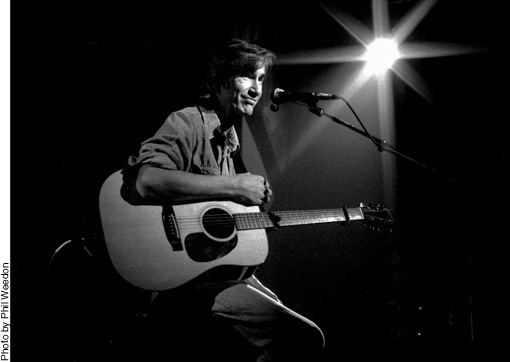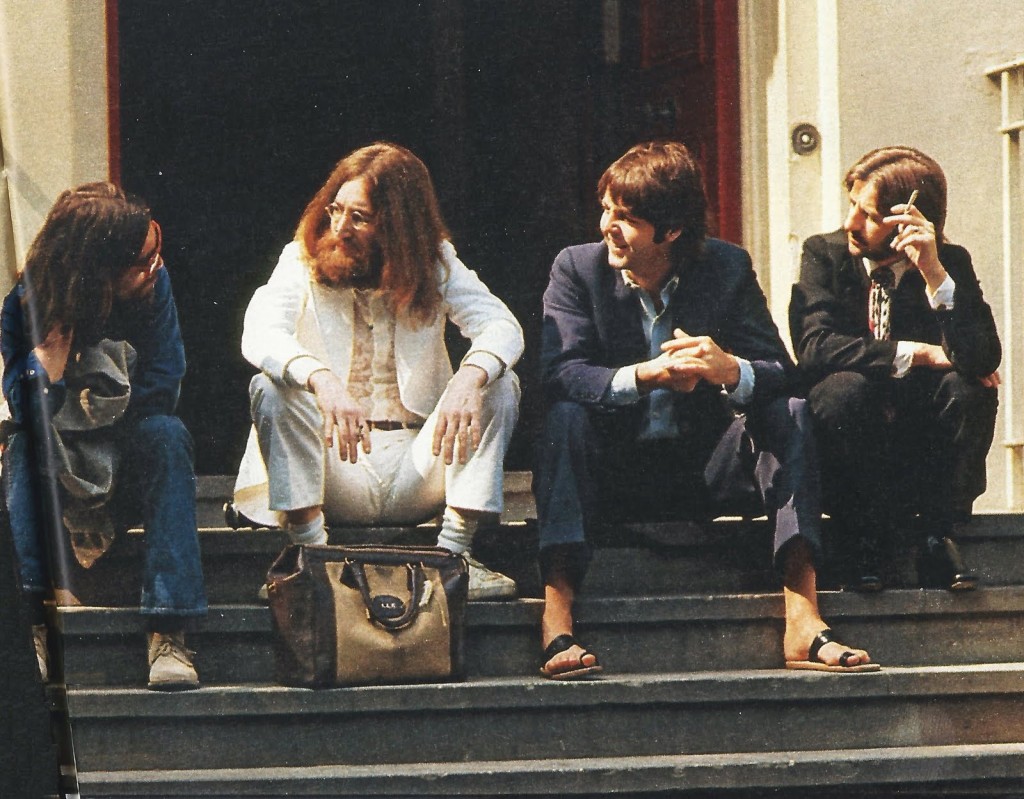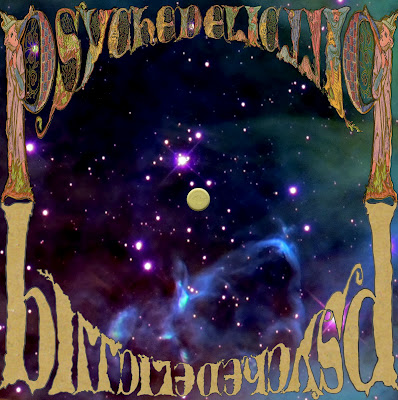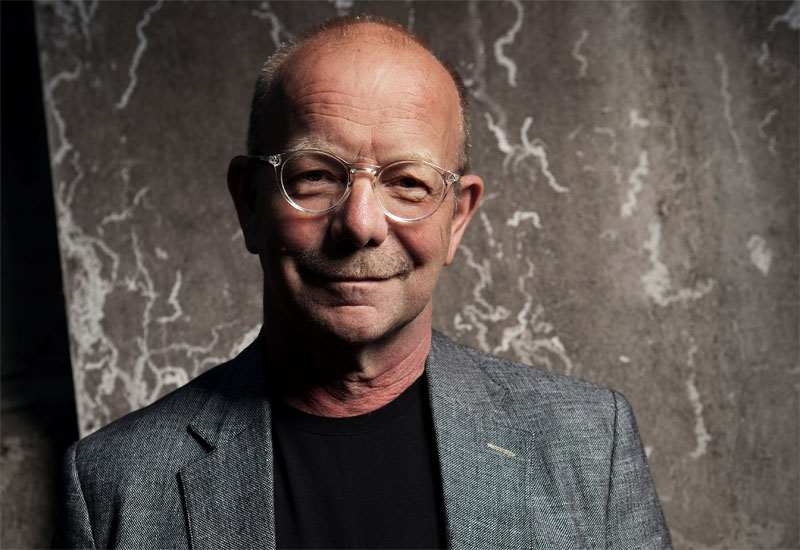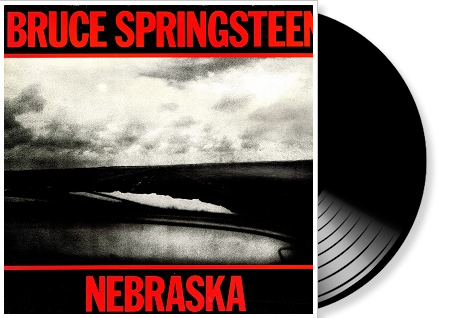
“The fact that you didn’t intend to release it makes it the most intimate record you’ll ever do. This is an absolutely legitimate piece of art.” Steven Van Zandt
“I felt that it was my best writing. I felt I was getting better as a writer. I was learning things. I was certainly taking a hard look at everything around me.”
Bruce Springsteen
I really love this album. I did not buy it in 1982 I got it a few years later, I listened to it at the record store when it was released, but it didn’t impress me. I couldn’t connect to it musically or lyrically. It is not an album that imidiately catches your attention, it needs to be listened to, properly.
When I did that I became very impressed!
Some facts (from Wikipedia):
| Released | September 30, 1982 |
|---|---|
| Recorded | Mostly January 3, 1982 at Springsteen’s Colts Neck, New Jersey bedroom |
| Genre | Americana, folk rock, folk |
| Length | 40:50 |
| Label | Columbia |
| Producer | Bruce Springsteen |
Nebraska is the sixth studio album by Bruce Springsteen, released in 1982 on Columbia Records.
Sparsely-recorded on a cassette-tape Portastudio, the tracks on Nebraska were originally intended as demos of songs to be recorded with the E Street Band. However, Springsteen ultimately decided to release the demos themselves. Nebraska remains one of the most highly-regarded albums in his catalogue. The songs on Nebraska deal with ordinary, blue collar characters who face a challenge or a turning point in their lives. Unlike his previous albums, very little salvation and grace is present within the songs.
Initially, Springsteen recorded demos for the album at his home with a 4-track cassette recorder. The demos were sparse, using only acoustic guitar, electric guitar (“Open All Night”), harmonica, mandolin, glockenspiel, tambourine, organ and Springsteen’s voice.
Springsteen then recorded the album in a studio with the E Street Band. However, he and the producers and engineers working with him felt that a raw, haunted folk essence present on the home tapes was lacking in the band treatments, and so they ultimately decided to release the demo version as the final album. Complications with mastering of the tapes ensued because of low recording volume, but the problem was overcome with sophisticated noise reduction techniques.
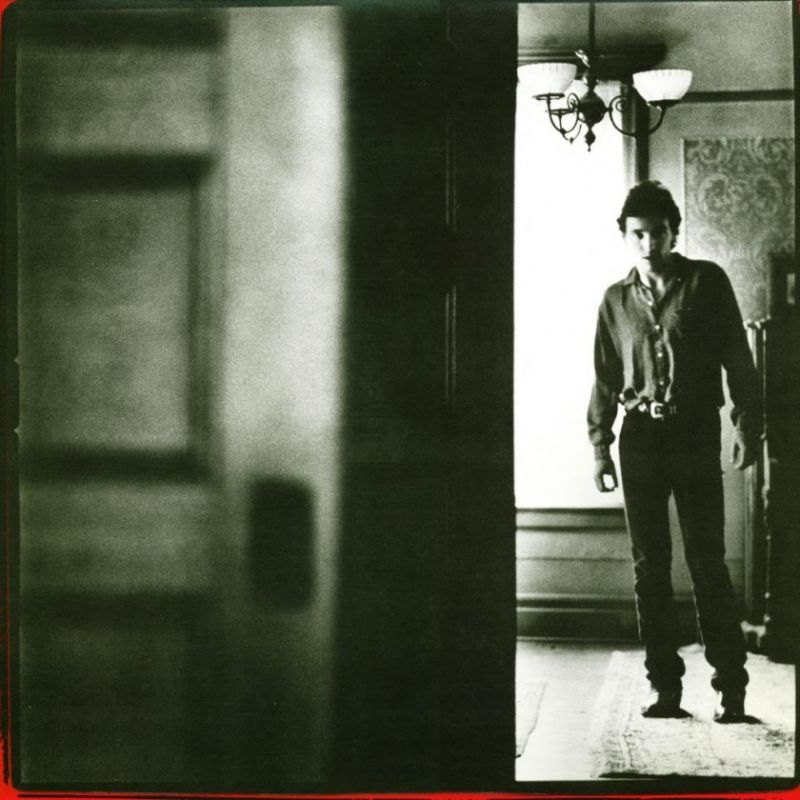
Springsteen fans have long speculated whether Springsteen’s full-band recording of the album, nicknamed Electric Nebraska, will ever surface. In a 2006 interview, manager Jon Landau said it was unlikely and that “the right version of Nebraska came out”. But in a 2010 interview with Rolling Stone, E Street Band drummer Max Weinberg praised the full band recording of the album as “killing.”
Critical Reception:
“There is an adage in the record business that a recording artist’s demos of new songs often come off better than the more polished versions later worked up in a studio. But Bruce Springsteen was the first person to act on that theory, when he opted to release the demo versions of his latest songs, recorded with only acoustic or electric guitar, harmonica, and vocals, as his sixth album, Nebraska. It was really the content that dictated the approach, however. Nebraska‘s ten songs marked a departure forSpringsteen, even as they took him farther down a road he had been traveling previously. Gradually, his songs had become darker and more pessimistic, and those on Nebraska marked a new low. They also found him branching out into better developed stories…”
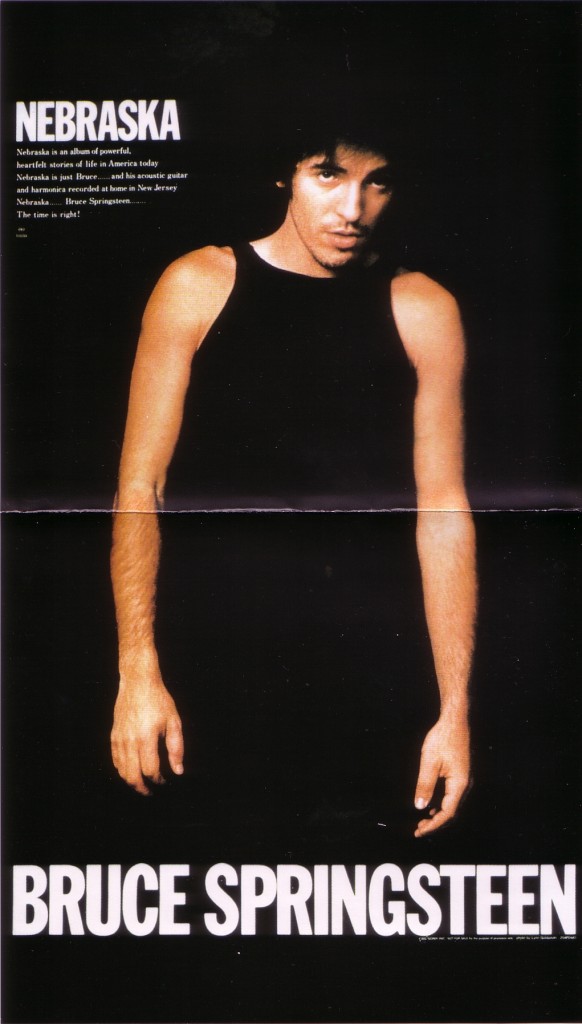
Promo poster for Nebraska in 1982
Robert Christgau:
Literary worth is established with the title tune, in which Springsteen’s Charlie Starkweather becomes the first mass murderer in the history of socially relevant singer-songwriting to entertain a revealing thought–wants his pretty baby to sit in his lap when he gets the chair. Good thing he didn’t turn that one into a rousing rocker, wouldn’t you say, though (Hüsker Dü please note) I grant that some hardcore atonality might also produce the appropriate alienation effect. But the music is a problem here–unlike, er, Dylan, or Robert Johnson, or Johnny Shines or Si Kahn or Kevin Coyne, Springsteen isn’t imaginative enough vocally or melodically to enrich these bitter tales of late capitalism with nothing but a guitar, a harmonica, and a few brave arrangements. Still, this is a conceptual coup, especially since it’s selling. What better way to set right the misleading premise that rock and roll equals liberation? A-
Nebraska is an acoustic triumph, a basic folk album on which Springsteen has stripped his art down to the core. It’s as harrowing as Darkness on the Edge of Town, but more measured. Every small touch speaks volumes: the delicacy of the acoustic guitars, the blurred sting of the electric guitars, the spare, grim images. He’s now telling simple stories in the language of a deferential common man, peppering his sentences with “sir’s.” “My name is Joe Roberts,” he sings. “I work for the state.”
“Now judge I had debts no honest man could pay
The bank was holdin’ my mortgage and they were gonna take my house away
Now I ain’t sayin’ that makes me an innocent man
But it was more ‘n all this that put that gun in my hand”
Bruce Springsteen would try to recreate Nebraska in 1995 when he released The Ghost of Tom Joad, an album that is very similar musically and lyrically. As much as I love The Ghost of Tom Joad, it was impossible to recreate the “accident” that happened on this simple casette demo, recorded in a New Jersey bedroom in January 1982.
– Hallgeir

